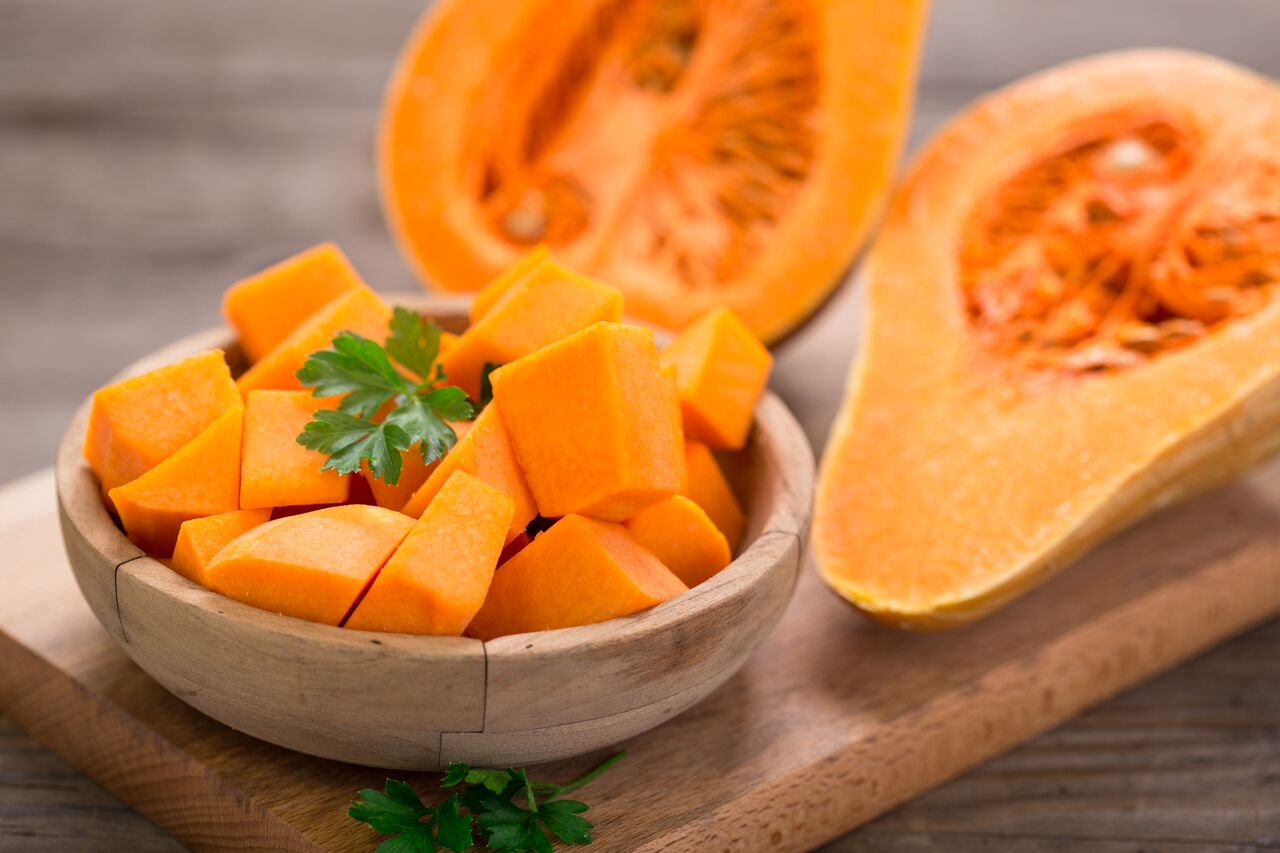Ingredients
- 2 small to medium butternut squash seeded but not peeled, cut into 1 inch cubes
- 2 Tbsp coconut oil
- drizzle of olive oil
- 1 Tbsp rosemary, ground into powder
- 1/21 cup fresh squeezed orange juice
- ½ cup dried, unsulfered and unsweetened cranberries (I make my own or found some sweetened with apple juice)
- Sea salt and pepper to taste
Preparation
- Preheat oven to 375 degrees (I use convection)
- Chop squash into cubes, add oils, rosemary, salt and pepper add to a large glass baking dish and cover.
- Bake at 375 for 60 minutes, stir after the first 30 minutes.
- Remove from oven and add orange juice and cranberries, stir, allow to cool and then refrigerate.
- Enjoy it cold or warm. To heat add a few sprinkles of water and cook on low on the stove top
More info on this recipe:
In Traditional Chinese medicine butternut squash is warming in thermal nature and sweet in flavor. A perfect dish to warm you during the coming winter months. It directly impacts the stomach and spleenpancrease which are in charge of extracting energy from food and helping transform it into Chi, vital lifeforce. This winter squash is higher in Vitamin A and three other healthy carotenoids (lutein, zeaxanthin, and betacryptoxanthin) than summer squash and improves the circulation of Chi. Here is some news for my Gut Repair Followers,“We think about winter squash as a very starchy vegetable—about 90% of its total calories come from carbohydrate, and about half of this carbohydrate is starchlike in its composition. However, recent research has made it clear that all starch is not the same, and the starch content of winter squash brings along with it some key health benefits. Many of the carbs in winter starch come from polysaccharides found in the cell walls. These polysaccharides include pectins—specially structured polysaccharides that in winter squash often include special chains of D galacturonic acid called homogalacturonan. An increasing number of animal studies now show that these starchrelated components in winter squash have antioxidant, antiinflammatory, as well as antidiabetic and insulinregulating properties.” (by whfoods.com) Rosemary is a warming herb and stimulates the central nervous system. It can therefore be beneficial for symptoms of low blood pressure and sluggishness. It has been historically known to help with concentration and memory. It also contains a strong antioxidant called rosmarinic acid. (References Healing with Whole Foods by Paul Pitchford and www.anniesremedy.com)


